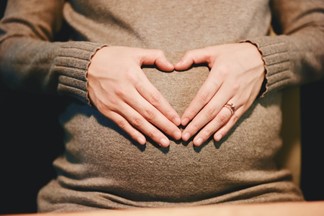
Proper nutrition isn’t just an important part of women’s health — it’s nothing less than vital.
Chike Aguh MD explains that throughout a woman’s life, nutritional needs evolve to help cope with higher risks of certain conditions or reflect specific personal health challenges.
Nutritional goals never fade as one ages. They often become more essential to follow than ever before.
According to the Centers for Disease Control and Prevention, around 14% of women at least 18 years old are considered either in fair or poor health, and just over 20% met federal government guidelines for regular physical activity.
Women cope with not just common health conditions like heart attack, obesity, and stroke but also conditions they are more likely than men to develop at some point in their lives. That includes osteoporosis, breast cancer, and depression.
The bottom line: Throughout a woman’s life prioritizing nutrition is a matter of life and death.
Women’s Health Basics
Two of the most important aspects of nutrition and wellness remain constant throughout a woman’s life — physical activity and a balanced diet. They often work in tandem. A balanced diet — which includes consuming recommended daily amounts of nutrients, vitamins, and calories — is key to maintaining a healthy weight that helps keep numerous medical conditions at bay.
With a balanced diet, physical activity becomes easier to accomplish. With both, health benefits last a lifetime. They lower the risk of stroke, cancer, heart disease, high blood pressure, and diabetes in women.
The federal government advises that women between 23- and 50-years old need somewhere between 1,700 and 2,200 calories a day (more if one is highly physically active) and try a diet that includes low sugar and fat intake, high in fruits and vegetables, and is high in vitamins and minerals like iron, folic acid, and calcium.

Special Consideration
Overall, women are more likely to experience nutrition-related health issues, including iron-deficiency anemia, lactose intolerance, and celiac disease, according to the U.S. Department of Health and Human Services Office on Women’s Health. Caloric intake is also important for women because they burn fewer calories during exercise and while at rest compared to men.
Also important to consider is reproductive health. Women must adjust their nutritional needs when they are pregnant, breastfeeding, and before and after menopause. Certain approaches to nutrition and wellness directly relate to reproductive health and hormonal imbalance, when a balanced and carefully considered diet is key.
Following the best nutritional guidelines impacts not just women’s lives but the health of their children. It goes beyond abstaining from alcohol and other drugs.
Proper nutrition while pregnant has been linked to the cognitive development and mental health of children and a lowered risk of developing a range of conditions, particularly those related to the bones and the heart.
The Heart of the Matter
Heart disease has long been the leading cause of death for women in the United States. Around 44% of all American women ‚— over 60 million — have a form of heart disease.
For a healthy heart, a diet rich in vegetables and fruits, as well as low in fat, is important to maintain throughout a woman’s life. The risk only increases with age, especially if there is a family history of heart disease.
In addition, heart health is bolstered when women commit to a minimum of 2 ½ hours a week of moderate exercise. That brisk jog followed by a healthy lunch a woman takes today may have benefits lasting far into the future.



